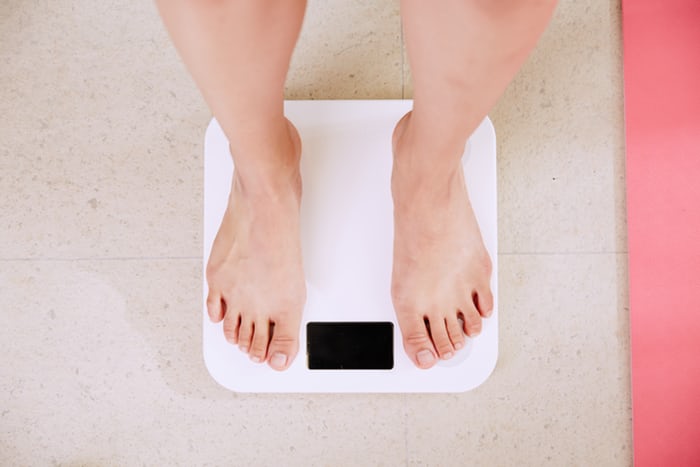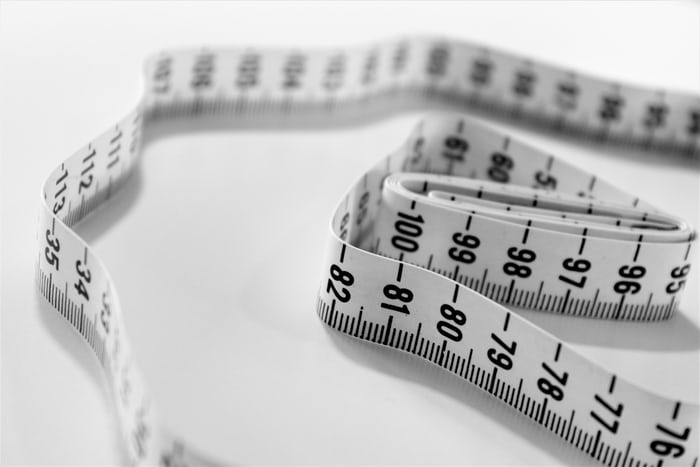I am an IBCLC (International Board Certified Lactation Consultant) in private practice in Northern Ireland and a La Leche League Leader with La Leche League of Ireland
Breastfeeding & Maternal Calorie Intake - Does everyone need 500kcal a day extra?

Most people in my part of the world (UK/Ireland) are told that while breastfeeding they need to consume around 500kcal extra each day. Some NHS websites say 300-500kcal, some other sites say 800kcal but most websites I looked at used a 500kcal figure. People are told this regardless of how much they are breastfeeding, their own size/weight/metabolism needs and the general implication seems to be that this needs to occur until breastfeeding stops. Women who want to lose weight while breastfeeding are often concerned about reducing calories because of this 500kcal need which is lodged in their thinking. How evidence based is this 500kcal figure however, and what does the research actually say about our calorie needs, milk production, and weight gain and loss during pregnancy and the post partum period?
Where did the 500kcal figure come from?
The first calorie suggestion given while breastfeeding seems to have been in 1950 where a report suggested that breastfeeding required an extra 1000kcal per day. This figure was revised to 800kcal in 1957 which stated that some women find it hard to consume an extra 1000kcal. This is hardly surprising as 1000kcal is a lot of food. These recommendations were devised from calculations of milk produced. The average baby at 6 weeks old (when milk production should be at full volume while exclusively breastfeeding) drinks around 28oz/850ml a day. The calorie content of milk is usually considered to average at 22kcal per oz. This means that mathematically speaking when lactating, you need to produce around 600kcal of milk. At the time of the early reports the efficiency of milk production was estimated to be 60%. In other words eating 100kcal would allow 60 of those calories to be produced as milk. The other 40kcal were used in the production process. Using this crude figure they arrived at 1000calories.
In a 1970 study (Thomson, Hytten, & Billerwicz) this changed to the 500kcal figure which is often currently used. By this time the efficiency of milk production was known to be much higher with the study suggesting that milk production may be 90% efficient, or that for every 100kcal eaten, 90kcal was converted into milk, and only 10kcal was lost in production. With this figure the study suggests:
The additional supply of 600kcal in the daily diet should suffice to support lactation and a ‘round figure’ of 500kcal daily may be regarded as reasonable in official recommended allowances
Our Bodies prepare for lactation during pregnancy
So from a simple mathematical perspective we can take some average figures around milk intake and milk calories and can come to a figure of 500kcal which a body may use in order to support lactation. Does this actually mean that we need to eat an extra 500kcal per day though? Let’s step back and look at humans a few thousand years ago, and at mammals in general.
Let’s start with a human woman giving birth in a hunter/gatherer society a few thousand years ago. Humans were at the mercy of the environment, the weather, the availability of foods. Would a women suddenly be able to gather 25% extra calories at a time when she is having to take care of a new vulnerable newborn? Even if her tribe were providing her with food, would an extra 25% be available? It makes sense that evolution would have had to find a solution to this problem.
What about other mammals? What about a solitary big cat (e.g. a cheetah) giving birth. At a time when she needs to recover from birth, and to intensively care for her newborn, is she going to be able to hunt 25% more, or to be 25% more successful in hunts? How can she protect her newborn from predators if she is away 25% more than she even gave birth?
The reality is that our body prepares for this extra calorie need while we are pregnant. During pregnancy fat accumulates on the thighs and the supra-iliac areas. The supra-iliac areas is the lower back area - what in my part of the world would be known as your “haunches”. This fat is laid down so that it can be liberated and used as energy/calorie stores to create milk while lactating. The NHS consider 22-26lbs of weight gain to be normal during pregnancy and 15-30% of this may be of fat. That is perhaps 6lbs of fat, which has the potential to be liberated into approx 24500kcal. At 500kcal a day that would provide 48 days. Isn’t is interesting that takes us to 7 weeks, when breastfeeding is considered to be established and usually we feel like we can get out and about a bit more. Obviously some people gain significantly different amounts that the recommended NHS average, but it is a useful illustration that if we have normal weight gain in pregnancy we have the calorie stores already in our bodies to establish breastfeeding without necessarily eating extra calories. Liberating these calories would cause post partum weight loss of the fat gained in pregnancy.
What does the research say about weight loss while breastfeeding?
We know our bodies lay down fat in preparation for breastfeeding and women are often told that they will lose this weight again when breastfeeding. Many do find the weight disappears quite quickly and easily. Others don’t. Some find they gain weight. So what is going on with this? What does the research say?
Well, the research tells us that during lactation whether we lose weight, maintain weight or gain weight is affected by the same factors as when not lactating (i.e. calorie expenditure vs calorie intake). A Texas study (Butte et al1984) found that breastfeeding women who consumed more calories lost less weight. A UK study (Goldberg et al 1991) found that when breastfeeding, the participants consumed 300kcal more calories per day through diet and in addition they used 200kcal less in physical activity. This may be where the 300kcal figure on some NHS sites comes from. Obv 300 calories more combined with 200kcal less requirement creates the 500kcal figure. Based on this Stubbe (2009) suggests:
when ample nutrition is available, women compensate for increased energy demands by increasing intake and decreasing energy expenditure rather than mobilizing fat stores.
So basically, in rich, well nourished societies we tend to eat more and move less in the early weeks after giving birth and so we don’t shift the baby weight. After the first 3 months this tends to change however and at 3-6 months breastfeeding parents lose more weight than formula feeding parents. At this stage we seem to be more likely to start using up those fat stores. Why this is isn’t clear. Perhaps we become more physically active. Perhaps we eat less. Either way this has been found to be the pattern in several studies.
Dewey et al(1993) found no significant difference in weight loss in first 3 months but afterwards those who breastfed for at least 12 months lost 2kg more than those who breastfed for 3 months or less. Ohlin & Rossner (1990) found more weight loss in breastfeeding women from 2.5-6 months post partum. In a 1996 study the same authors found that those who snacked 3 or more times a day did not lose weight when breastfeeding. Again this shows the calories in vs calories out nature of weight loss in lactation.
Individual Variation
The next problem we hit with the idea of a standard number of calories is that of individual variation. There are just so many factors which can vary in this picture. Take the calories in the milk produced to begin with. So to get the 500kcal the 2 figures used are an average intake of around 28oz/850ml a day at 22kcal an oz. Not all babies are going to drink 28oz/850ml a day. One exclusively breastfeeding baby may take 25oz/750ml. Another may take 35oz/1000ml and still be considered in normal range. That’s just exclusively breastfeeding babies. Where I live and work the majority of breastfed babies are probably being combination fed after the first few days/weeks. So a baby may be taking only 10oz/300ml of breastmilk and 18oz/550ml of formula. Assuming 22kcal per oz (the standard figure) the person producing 10oz of breastmilk may need 250kcal extra energy use, whereas the person producing 1000ml/35oz may need 850 kcal extra energy.
That standard 22kcal per oz is also problematic however. This assumes a few “averages”. It asssumes that milk contains around 3-5% fat. In fact fat is extremely variable depending on the individual person, on how frequently the baby feeds, time of day etc. Studies suggest that milk fat content can be significantly higher in some people, and 1oz of milk could range from 13-35kcal/oz. That’s almost a 300% difference. Apply that range to the “standard” 28oz figure. Now someone producing milk at 13kcal at 90% efficiency would require around 400kcal whereas someone producing milk at 35kcal at 90% efficiency would require 1000kcal. In reality we do not have standard fat contents. Each of us has a range, but potentially some people even with their lowest fat content may be higher than another person’s highest fat milk.
On top of this we have to add individual metabolism and pre-pregnancy BMI. Some of us are lean and don’t have much body fat. Some women, who perhaps had hyperemesis did not lay down fat reserves during pregnancy. Some are very active even straight after birth. These women may need to eat a lot more in order to meet the calorie needs of breastfeeding. Others gained a lot in pregnancy or were already overweight before getting pregnant. These people may have good fat reserves that can be liberated and therefore they don’t need to eat a lot of extra calories.
Finally we have weaning. As a baby moves on to solids their milk intake decreases. Calorie expenditure on milk production therefore decreases. Someone breastfeeding a toddler shouldn’t need to expend the same calories on milk production as someone exclusively breastfeeding an 8 week old.
Can I intentionally diet while breastfeeding?
This is such a common concern, and it makes sense that it is. The research tells us that in countries where food is plentiful we tend to reach for more food to make up the energy needed for breastfeeding so many of us just don’t shift that pregnancy weight. Those who are intentionally eating 500kcal extra a day may even find they put on more weight. The short answer to whether you can diet is Yes. If you are overweight then losing weight can be beneficial even when breastfeeding, for both baby and parent. The type of fats we lay down in the lower body during pregnancy tend to be long chain polyunsaturated fatty acids (Lassek & Gaulin 2006). Again this looks to be by design, as liberating these during breastfeeding helps to support baby brain development. If we retain that pregnancy weight it can increase long term risk of metabolic disease, hypertension, type 2 diabetes, heart attack.

The basis of weight loss during breastfeeding is the same as when not breastfeeding. It is a healthy, balanced diet where the calorie expenditure is less than calorie intake. A 1986 study (Strode et al) found that restricting calories to 1500kcal a day did not change milk composition or volume significantly. Another study (McCrory et al 1999) looking at weight loss gave women a diet and exercise program with a 35% energy deficit. This resulted in a loss of 1kg/2.2lbs a week. Milk volume, composition, energy output and infant weight did not differ significantly. Some caution should be taken around low carbohydrate diets however. Carbohydrate is the major energy source in mammal milk. Mahan & Escott-Stump, 1996 state that consuming a low carb diet when breastfeeding may lead to fatigue and dehydration. Bronner &Auerbach, 1999 suggested that a minimum of 100g of carbs should be eaten per day when breastfeeding. Certainly in practice I have met women who found that their milk supply dropped suddenly and dramatically when they went on a low carb diet. Another concern is B-6. Restricting food intake can limit B-6 intake so some researchers suggest that if dieting while breastfeeding B-6 should be supplemented.
Many points based diet clubs have modified diets for use when breastfeeding.
There is no 1 size fits all
We are individuals. Our babies are individuals. We produce varying amounts of milk, with varying energy production and varying energy needs. We start from different points with bodies that vary in fat reserves. Some of us exclusively breastfeed, and others combination feed. Some of us will need to eat significantly more calories to maintain weight when breastfeeding, others who want to lose weight may need to eat very little more, or perhaps no more in some cases. What we do know is that the 500kcal figure is not applicable to everyone. We also know that obesity is a growing problem as is gestational diabetes. The research on needed calories is heading in just one direction, from 1000kcal, to 800, then 500 and now to 300-500kcal. Even at that the research recognises that many women find it hard to lose weight when breastfeeding and the recommended calorie intakes may be too high.
There is no one size fits all so we have to react to what is happening. If we are a healthy weight for height and breastfeeding is going well then we probably have the balance of calories right. If we are losing weight and don’t need to we may need to increase our intake. If we are too heavy and need to lose weight or are having problems losing weight then we may be eating too many calories. It’s safe to lose weight at a healthy level while breastfeeding without affecting milk volume for your baby.
If you have any questions about a consultation or would like to arrange to meet, please get in touch.
Further Reading
1. Thomson, A.M., Hutton, F.E., Billewicz, W.Z. (1970). The energy cost of human lactation. British Journal of Nutrition, 20(2), pp. 565-572 https://doi.org/10.1079/BJN19700054
2. Stuebe, A. M., & Rich-Edwards, J. W. (2009). The reset hypothesis: lactation and maternal metabolism. American journal of perinatology, 26(1), 81–88. doi:10.1055/s-0028-1103034
3. https://www.nhs.uk/common-health-questions/pregnancy/how-much-weight-will-i-put-on-during-my-pregnancy/
4. Rasmussen, K. M., Catalano, P. M., & Yaktine, A. L. (2009). New guidelines for weight gain during pregnancy: what obstetrician/gynecologists should know. Current opinion in obstetrics & gynecology, 21(6), 521–526. doi:10.1097/GCO.0b013e328332d24e
5. https://expectingscience.com/2017/11/14/five-little-known-facts-about-pregnancy-weight-gain/
6. Butte, Garza, Stuff, Smith, Nichols, Effect of maternal diet and body composition on lactational performance, The American Journal of Clinical Nutrition, Volume 39, Issue 2, February 1984, Pages 296–306, https://doi.org/10.1093/ajcn/39.2.296
7. Goldberg GR, Prentice AM, Coward WA, et al. Longitudinal assessment of the components of energy balance in well-nourished lactating women. Am J Clin Nutr. 1991;54:788–798
8. Dewey KG, Heinig MJ, Nommsen LA. Maternal weight-loss patterns during prolonged lactation. Am J Clin Nutr. 1993;58:162–166
9. Ohlin A, Rossner S. Maternal body weight development after pregnancy. Int J Obes. 1990;14:159–173
10. Ohlin A, Rossner S. Factors related to body weight changes during and after pregnancy: the Stockholm Pregnancy and Weight Development Study. Obes Res. 1996;4:271–276.
11. Lassek WD, Gaulin SJ. Changes in body fat distribution in relation to parity in American women: a covert form of maternal depletion. Am J Phys Anthropol. 2006;131:295–302
12. Strode MA, Dewey KG, Lonnerdal B. Effects of short-term caloric restriction on lactational performance of well-nourished women. Acta Paediatr Scand. 1986; 75: 222-229.
13. McCrory MA, Nommsen-Rivers LA, Mole PA, Lonnerdal B, Dewey KG. Randomized trial of the short-term effects of dieting compared with dieting plus aerobic exercise on lactation performance. Am J Clin Nutr1999;69:959-967
14. Wilson, Pugh. Promoting Nutrition in Breastfeeding Women. Journal of Obstetric, Gynecologic, & Neonatal Nursing 2004 https://doi.org/10.1177/0884217504272806
15. Mahan, L. K., & Escott-Stump, S. (1996). Krause’s food, nutri- tion, and diet therapy (9th ed.). Philadelphia: Saunders.
16. Riordan, J. and Auerbach, K.G. Breastfeeding and human lactation. in: K. McClure (Ed.)Maternal nutrition during lactation2nd ed.,Jones and Bartlett, Sudbury, MA; 1999: 515-535
17. Lovelady, C.A., Williams, J.P., Garner, K.E., Moreno, K.L., Taylor, M.L., and Leklem, J.E. Effect of energy restriction and exercise on vitamin B-6 status of women during lactation.Medicine &. Science in Sports & Exercise. 2001; 33: 512-518
Important Information
All material on this website is provided for educational purposes only. Online information cannot replace an in-person consultation with a qualified, independent International Board Certified Lactation Consultant (IBCLC) or your health care provider. If you are concerned about your health, or that of your child, consult with your health care provider regarding the advisability of any opinions or recommendations with respect to your individual situation.
